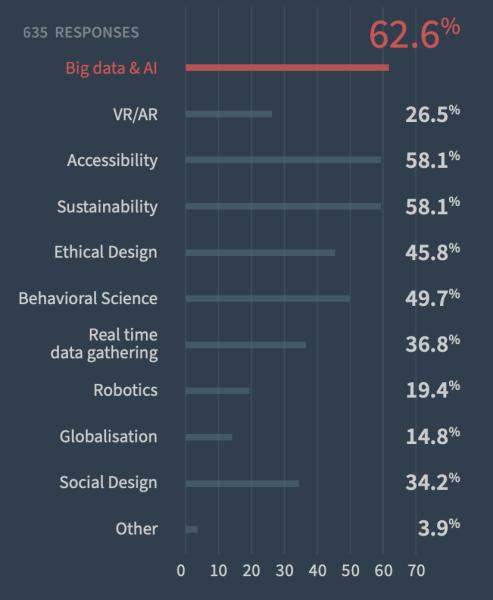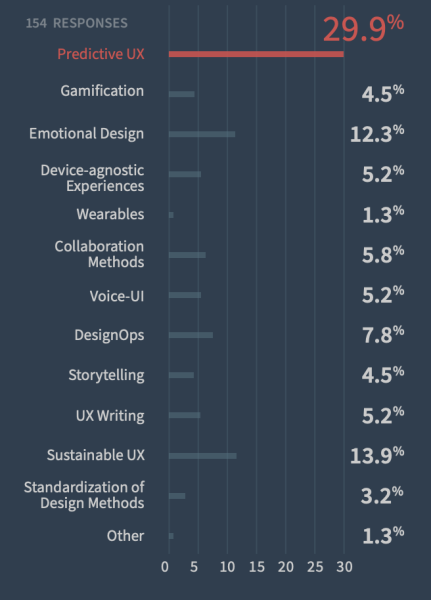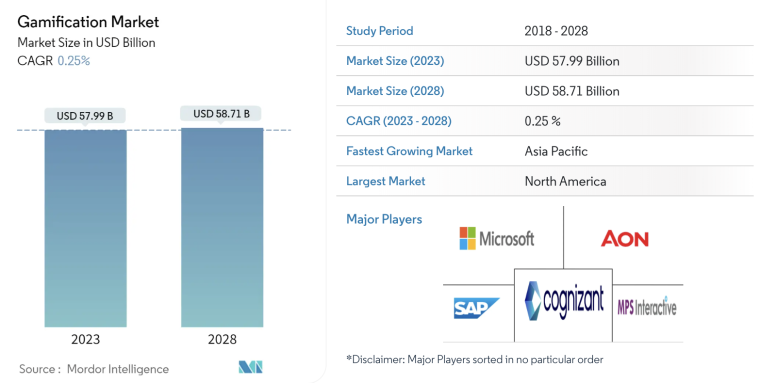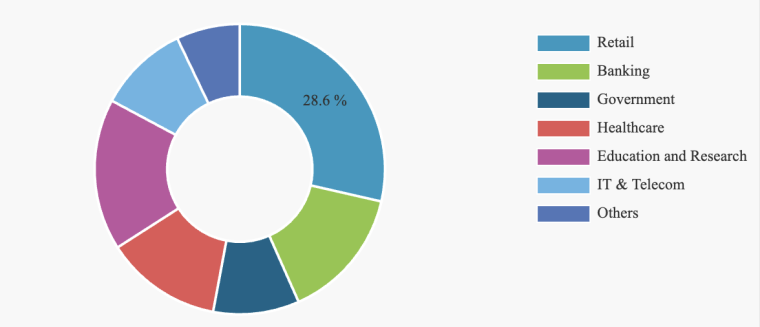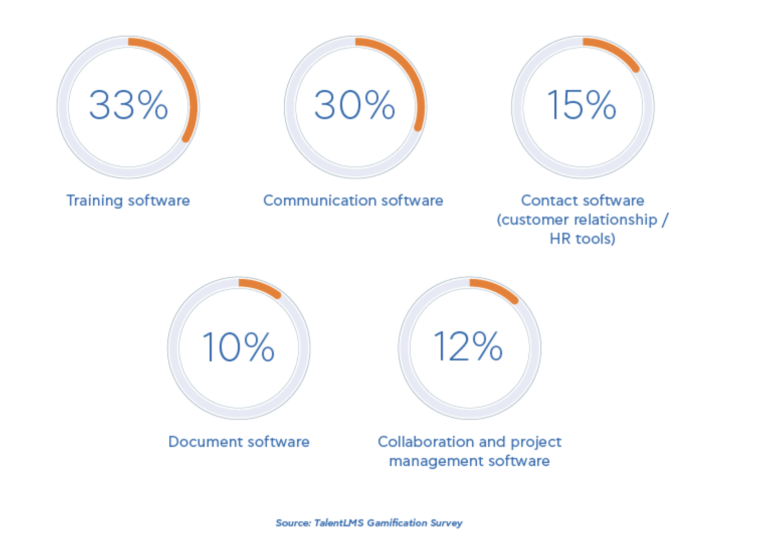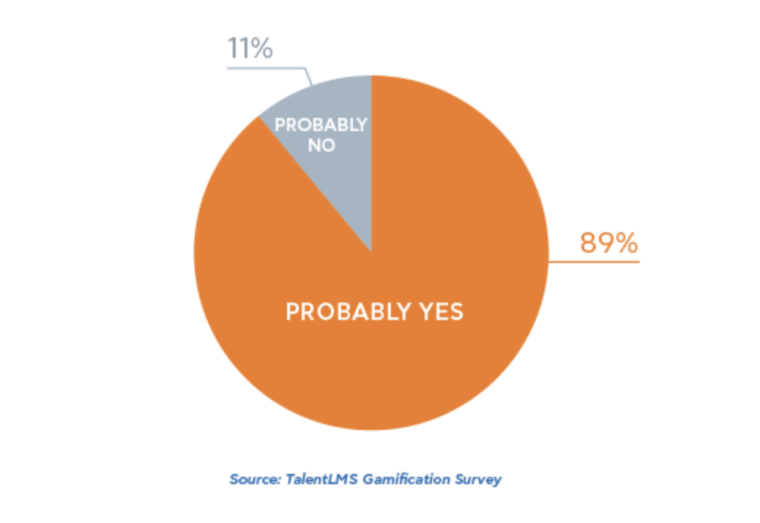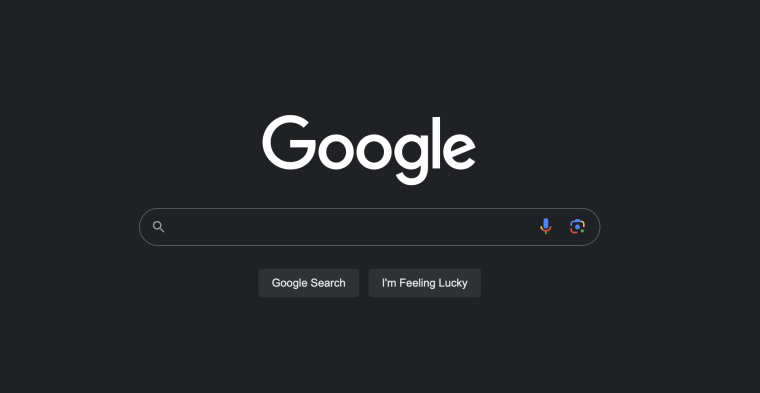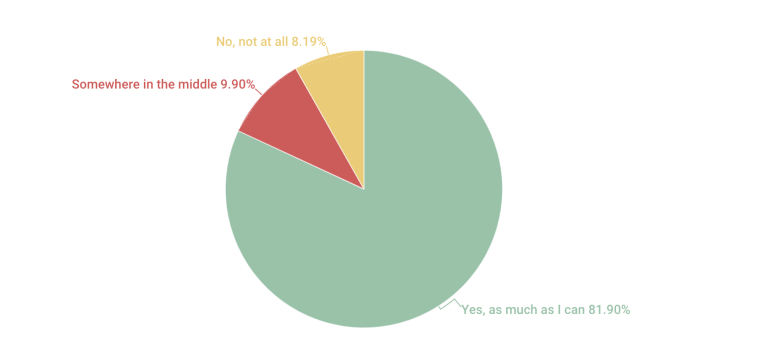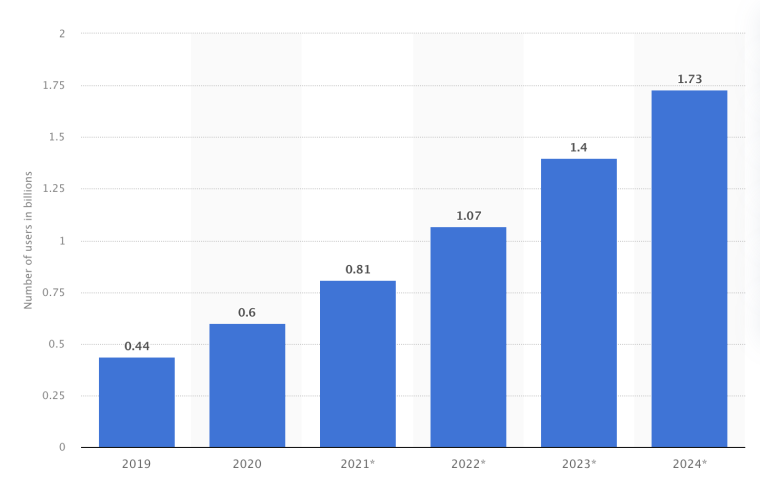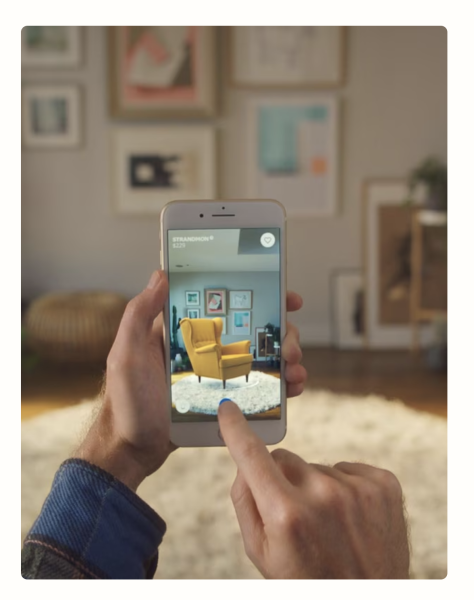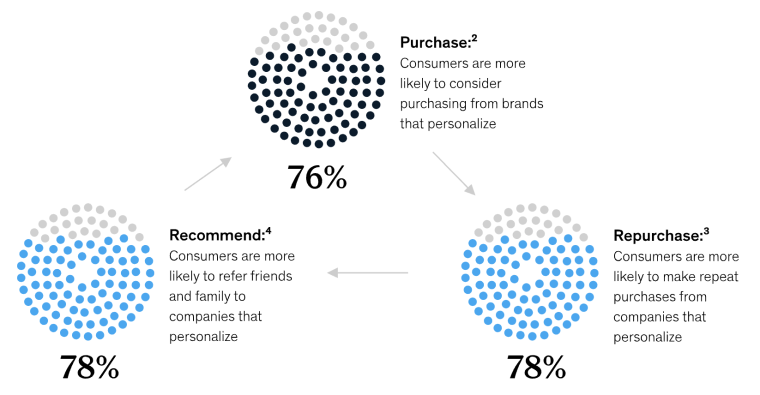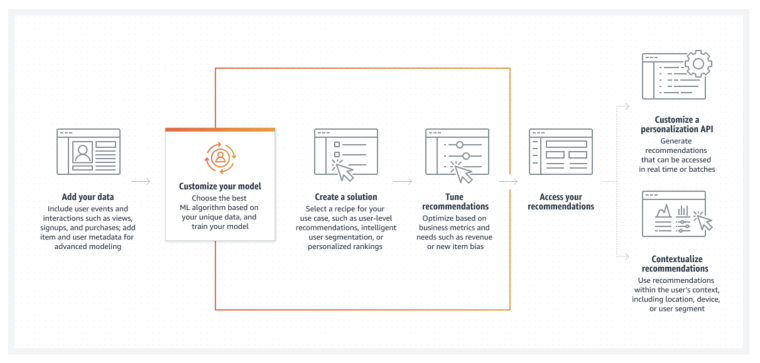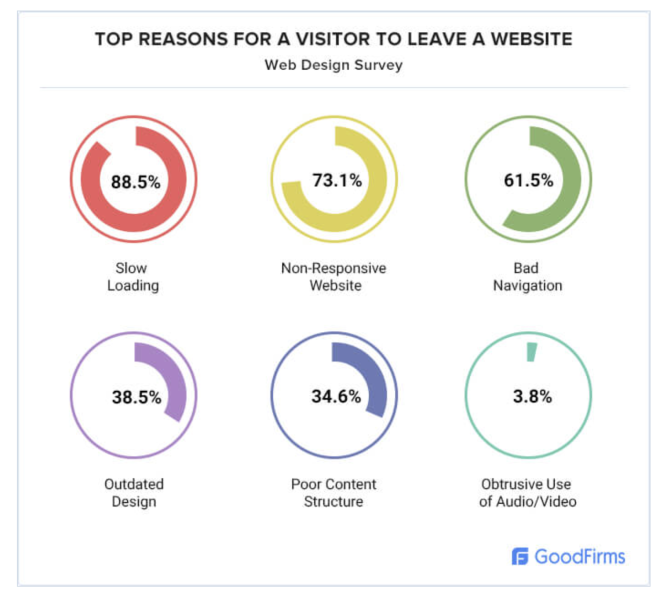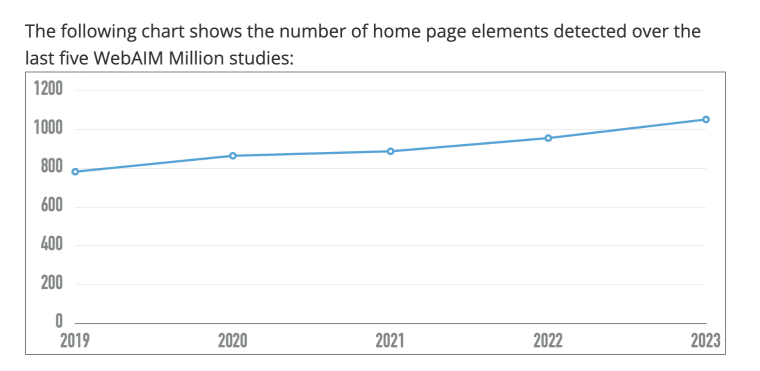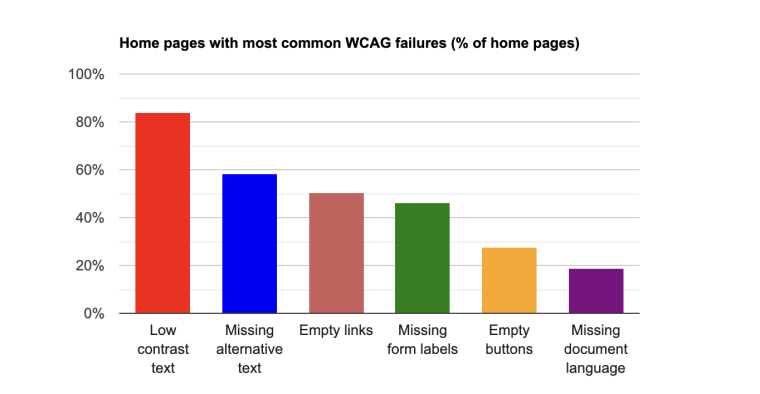In 2025, consumers are demanding a much more sophisticated user experience (UX). It’s up to your company to keep clients satisfied and a solid understanding of UX trends can create a smooth shopping experience, increase revenue, and expand business reach.
At Business2Community, we aim to provide the best business resources. To help your company get ahead, we’ve put together a list of the newest UX trends that many websites use for growth. Whether you’re searching for a fresh UX design for your business or just want to learn about engaging users with these trends, you’ve come to the right place.
Key UX Design Trends
- In 2021, 71% of customers expected personalization.
- In 2023, 95.3% of UX designers were using AI-powered tools in their work.
- 88.5% of users left a website because of the slow traffic time.
- 81.9% of users preferred to use dark mode whenever they could.
- In 2023, the AR user penetration rate in UX design was 92.2%.
What are 2025’s UX Design Trends?
UX designs are an inseparable part of business operations. Companies that can create an engaging UI/UX design are much more likely to thrive.
According to AWS’s 2020 report The Trillion Dollar UX Problem: A Comprehensive Guide to the ROI of UX, $1,420,300,000,000 was lost by businesses due to bad UX.
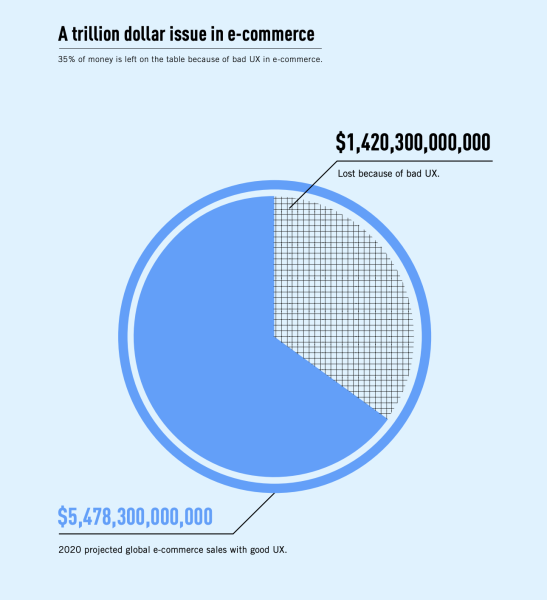
UX is the secret sauce for growth. Raffaela Rein, co-founder of CareerFoundry, said, “When we first started using UX design as a business practice, we grew revenues by 895% in the first three months.”
The Global UI and UX Design Software Market Research Report 2023 estimated the global UI/UX market value to be $1.12 billion in 2022. The number is expected to reach $4.1 billion by 2028, giving a CAGR of 24.13%.
Designers and business owners who stay up to date about the latest trends and UX technology in this sector can reap greater profits and customer loyalty.
1. Artificial Intelligence Adopted in UX
AI has revolutionized the way we live and do business. Using AI is a top UX design trend in 2025.
A 2023 survey conducted by UXtweak revealed that 95.3% of UX/UI designers were using AI-powered tools in their work or were open to the idea. 66.4% of current AI users intended to continue utilizing the new technology.
According to the 2023 UX Trends Report published by the World Usability Congress, 62.6% of UX professionals believed big data and AI were the most important elements in the sector.
29.9% also voted predictive UX to be the most important trend, ranking top on the list, followed by sustainable UX (13.9%) and emotional design (12.3%)
Through machine learning, AI can study consumer behavior and make decisions on the client’s behalf with high accuracy, thus offering the most intimate, personalized experience that can evoke positive emotions and generate high-ticket sales.
AI can also provide feedback to UX design teams to create better systems to elevate the shopping experience. Whether you want a minimalistic design or a flashy, modern website, AI tools can suggest customized options based on past data points.
2. Gamification to Improve the User Experience
Gamification nurtures relationships between companies and employees as well as customers. Enterprises can introduce game-like features in the training process to make it more enjoyable for users. For consumers, gamification is an eye-catching UI element that spikes up their interest in the company.
Mordor Intelligence stated that the gamification market was worth $57.99 billion in 2023. Major tech players, including Microsoft, Aon, and SAP, have integrated gamification into their employee training process and sales experiences.
i
Research carried out by Fortune Business Insights found that the retail industry accounted for 28.6% of the total gamification market share in 2019, ranking top on the list.
In TalentLMS’ 2019 Gamification at Work Survey, 33% of respondents said they would like to see more game-like features in training software and 30% in communication software. 87% stated games made them feel more socially connected and built positive feelings toward the company.
89% believed they would be more productive if they had access to more gamification features.
Designers should focus on building an interactive UI design to intrigue users. This UI trend can efficiently raise productivity and morale for internal purposes like training new employees.
For external purposes, a customer-driven UI design can improve impressions and satisfaction rates.
Micro-interactions and on-page games can capture users’ attention, encouraging them to stay and explore. For example, something as simple as a scroll effect and compatibility quizzes can refine the matching experience on a dating app.
3. Users are All About Dark Mode
The modern, sleek dark mode has become another emerging UX trend in 2025.
Dark mode can guide users with visual impairements around the environment more efficiently, providing better accessibility to these needs. It is also less tiring on the eyes for regular users.
Trending websites like Google, YouTube, Gmail, Instagram, and Facebook all offer a dark mode option. Some systems can even automatically switch between the light theme and the dark theme, depending on the time.
In a 2020 Android Authority poll, 81.9% of users preferred to use dark mode whenever they could.
To catch up with this UX trend, developing a user-friendly design with a dark theme is necessary. The new feature can increase user comfort and result in better conversion rates for your apps and websites.
4. Harness Augmented Reality and Virtual Reality for Better User Engagement
Augmented reality (AR) and virtual reality (VR) get users hooked on your services and mimic the physical shopping experience, offering better user engagement.
Alongside major hardware upgrades and technological advancements, companies that introduce virtual reality in 2025 to their services can deliver better immersive experiences.
Statista estimated the total active AR devices to be 1.4 billion in 2023. The figure is set to exceed 1.73 billion by 2024.
IKEA has been using AR in its shopping process for years. Customers can see how a piece of furniture will look in their home before purchasing. It reduces the return rate and delivers positive experiences to potential clients as they can see the specific product features before paying.
The use of AR is infiltrating every industry. International cereal brand Kellogg’s partnered with an AR firm, Blippar, to launch an interactive AR game for its Coco Pops campaign. The fun game successfully brought higher conversion rates.
Businesses are taking advantage of these new technologies and offering similar user-friendly AR/VR tools in their apps.
In 2023, Statista estimated the AR user penetration rate in UI/UX design to be 92.2%. The rate is projected to be 103.6% by 2027.
UX UI designers who employ VR technology in their work can create better layouts to enhance user interactions.
5. Personalized User Experiences are Trending
Most companies offer a wide range of products/services. Instead of having consumers manually filter through a catalog, personalization automatically brings your target audience exactly what they want.
Companies like Netflix and Amazon offer personalized recommendations to customers. By collecting consumer data, they customize their landing pages to promote specific products. These relevant recommendations can grab users’ attention, thus increasing sales and satisfaction rates.
McKinsey’s Next in Personalization 2021 Report revealed that 71% of customers expected personalization and 76% of user frustration came from visiting websites without personalized services.
Personalization was also the deciding factor when making a purchase. 76% of respondents believed personalized experiences encouraged purchases while 78% stated that they were more likely to repurchase or refer friends to brands that personalized.
Respondents believed the major benefits of personalization were:
- It is easier for users to navigate the website (75%)
- It offers useful product recommendations (67%)
- It provides users with personalized messages to nurture relationships (66%)
- It delivers relevant promotional information to enhance user engagement (65%)
Cloud computing giant AWS uses machine learning to help design teams create suitable user interfaces with an emphasis on personalization.
Studying the user behavior of your target group can accurately deliver information they are interested in. Incorporating personalization in your web design is the money-making UX/UI trend to follow.
6. Mobile Devices are Where to Focus
Smartphones continue to generate the most online traffic in 2025. According to research conducted by Similarweb, mobile contributed to 64.1% of all online traffic in 2023.
Google reported that while 50% of users were likely to download a brand’s app for loyalty points, roughly the same percentage stated that they would go on the mobile sites because they didn’t want to download mobile apps.
Building high-quality and responsive user interfaces for your websites as well as apps provides a seamless user experience as your customers can make purchases on whichever channel they choose.
UX designers can carry out regular tests and optimizations on screen sizes to ensure your brand’s mobile-friendliness.
7. Smooth User Interfaces are In Demand
In 2025, speed is key. Having a visually appealing layout alone is not enough – customers want a practical user interface design that gets the job done.
A 2023 GoodFirms Research Report found that slow loading time (88.5%) was 2 times more likely to lead a visitor to leave a website than an outdated web design (38.5%). Another 73.1% reported that a non-responsive website was the main reason to abandon a visit.
61.5% of business owners have redesigned their web pages to improve UX and get users engaged while 80.8% did it due to the low conversion rate.
Usability testing is an excellent way to examine how users interact with the design and flow to make sure it hits your business goals.
8. Accessible Designs are Paramount
The European Accessibility Act demands service providers offer accessible online services to people with a disability. The act targets sectors like ecommerce, digital media services, banking, operations, and more.
In an era where inclusiveness matters, businesses have to create accessible user interfaces to gain public recognition and meet any potential legal requirements in place.
According to a nonprofit organization, WebAIM, 4.8% of all landing pages contained accessibility errors in 2023. From 2019 to 2023, the average home page elements increased from 955 to 1050, indicating a more accessible web space for disabled people.
The most common home page issues were:
- Low contrast text (83.6%)
- Missing image alt text (58.2%)
- Empty links (50.1%)
As the world seeks to build a more accessible online space, there may be tighter regulations in place in the future.
To enhance accessibility levels, UI designers can adopt voice user interfaces, bright colors, dark mode, etc., to allow all users to enjoy the same experience. User testing is an effective way to measure how the current design lives up to standards.
How to Find UX Design Trends
The trends mentioned above are a solid foundation for standing out from your competitors, but that’s just the beginning. You should always be on the lookout for new UX trends to leverage, though finding them can be challenging. Let’s explore how you can spot key trends before your rivals do.
1. Reports and Surveys
Reports and surveys published by credible sources give you detailed guidelines about the latest UX trends.
Software companies like Similarweb and Good Firms conduct regular research into the newest UX/UI trends. Their reports cover the hottest UI patterns, tools to track micro-interactions, and tactics organizations are adopting.
These surveys and reports highlight UI elements businesses can utilize to increase user engagement and refine their products. Following their updates is an easy way to stay informed about the UI design market.
2. Seminars and Conferences
Meeting the pioneers in the UX design industry is the best way to obtain first-hand data. There are numerous annual seminars and conferences in the design world.
For example, if you’re looking to understand more about personalization, Personalization Pioneers organizes regular talks where experts provide insights about current trends.
UXDX also hosts regular conferences, both physical and online, for like-minded professionals to discuss new tactics to curate better user experience.
From the latest software products to the best UI/UX design, these meetings offer invaluable information about the gold mine in the industry.
3. Podcasts
If you find reading reports and attending conferences too time-consuming, podcasts are a great alternative to hear about the new trends.
UXPodcast is a fantastic channel run by industry experts James Royal-Lawson and Per Axbom. In each episode, they invite a UX designer to discuss emerging trends.
Whether you want a new voice user interface or rebrand your design system, the podcast is the place to find inspiration.
The Future of UX Design
Following the rapid growth in the UX world, the future of UX design is looking more vibrant than ever. More businesses will focus on delivering good UX to retain customers and nurture growth.
To embrace yourself for upcoming trends, here are a few things to expect:
- AI will be more widely used in determining user preferences and optimizing UX designs
- There will likely be more legal requirements on accessibility features and inclusive designs
- More businesses will integrate advanced AR/VR tools in their apps to provide a comprehensive shopping experience comparable to physical shopping
- Customizable interfaces for consumers to choose from
